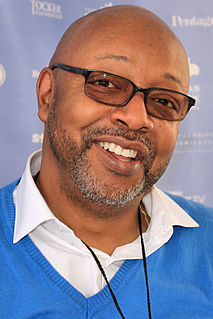A Quote by Terry Brooks
Why pretend to be something you're not? If you have to be someone, be someone no one else is.
Related Quotes
Someone real," I hear myself saying. "Someone who never has to pretend, and who I never have to pretend around. Someone who's smart, but knows how to laugh at himself. Someone who would listen to a symphony and start to cry, because he understands music can be too big for words. Someone who knows me better than I know myself. Someone I want to talk to first thing in the morning and last thing at night. Someone I feel like I've known my whole life, even if I haven't.
Nothing frustrates me more than someone who reads something of mine or anyone else's and says, angrily, 'I don't buy it.' Why are they angry? Good writing does not succeed or fail on the strength of its ability to persuade. It succeeds or fails on the strength of its ability to engage you, to make you think, to give you a glimpse into someone else's head—even if in the end you conclude that someone else's head is not a place you'd really like to be.
What was love, really? Flowers, chocolate, and poetry? Or was it something else? Was it being able to finish someone's jokes? Was it having absolute faith that someone was there at your back? Was it knowing someone so well that they instantly understood why you did the things you did—and shared those same beliefs?
What do you call it when someone steals someone else's money secretly? Theft. What do you call it when someone takes someone else's money openly by force? Robbery. What do you call it when a politician takes someone else's money in taxes and gives it to someone who is more likely to vote for him? Social Justice.
People are always pleased to indulge their religiosity when it allows them to stand in judgment of someone else, licenses them to feel superior to someone else, tells them they are more righteous than someone else. They are less enthusiastic when religiosity demands that they be compassionate to someone else. That they show charity, service and mercy to everyone else.
All organizations start with WHY, but only the great ones keep their WHY clear year after year. Those who forget WHY they were founded show up to the race every day to outdo someone else instead of to outdo themselves. The pursuit, for those who lose sight of WHY they are running the race, is for the medal or to beat someone else.



































